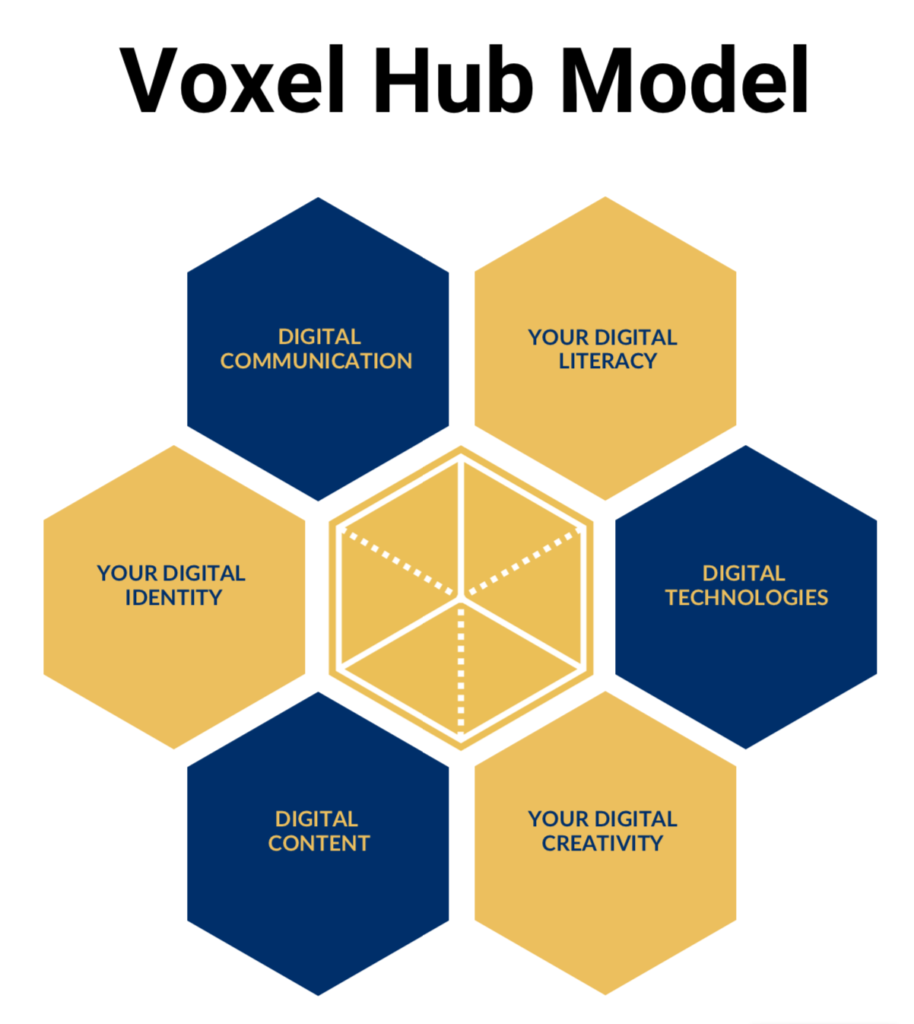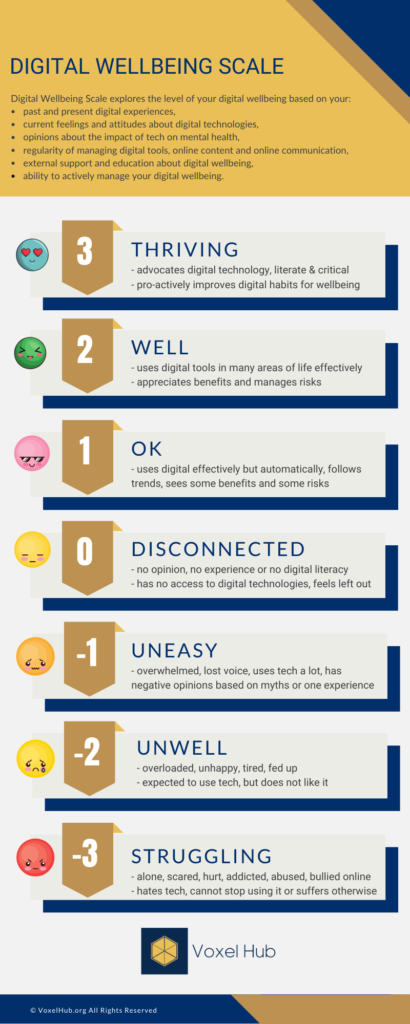Digital wellbeing is a new concept, so very few professionals have a clear definition. It is a term commonly used in relation to healthy digital habits.
However, based on my digital experience, cyberpsychology, and mental health studies, I have prepared a more specific definition and dedicated digital wellbeing model.
I define digital wellbeing as a process of active, informed decision-making to improve our sense of wellbeing in the digital age.
Instead of unplugging, we should embrace the digital age and make digital tools work for us.
I believe that good digital wellbeing depends on six key aspects:
- your personal experiences and active education (digital literacy),
- a good understanding of digital landscapes and tools (digital technologies),
- balanced participation in content creation and consumption (your digital creativity and the content you are accessing),
- how you shape your online identity (digital identity),
- how you connect with others online (online networks).
There are a few more complex digital wellbeing models, but for Voxel Hub purposes, I prefer to keep digital wellbeing as simple as possible. If you want to find out more about the current research, go to the resources page. If you want to review your personal digital wellbeing, go to our self-assessment page.




